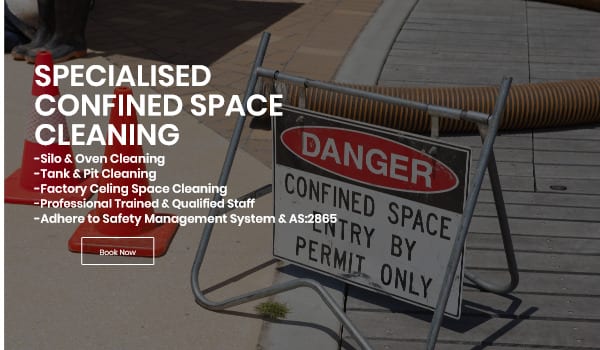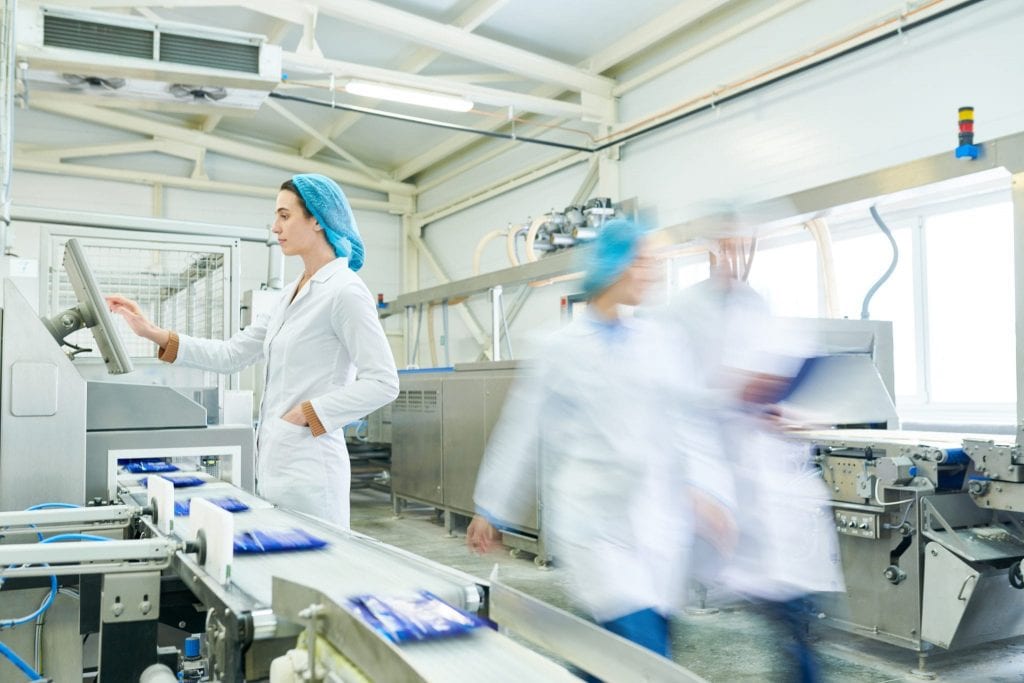We understand that it’s essential that cold rooms & refrigerated storage facilities are kept running efficient, maintain the temperature & are kept clean and sanitary. A Hygienic environment is vital to ensure the quality and safety of the consumable product produced. Regular cleaning of industrial cool rooms prevents the growth of mould and other food pathogens.
Refrigerated Cold Room Cleaning & Cold Room Mould Removal
Brisbane | Gold Coast | Sunshine Coast | Ipswich | Toowoomba
HVAC Cleaning Australia know how to Clean Cold Rooms & Cold Storage Facilities
Cold Room Cleaning Brisbane |Gold Coast |Ipswich | Sunshine Coast
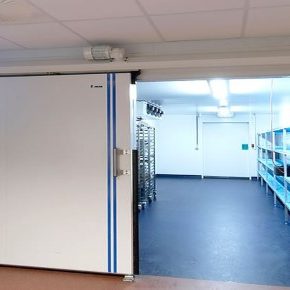



We have trained & qualified technicians ready to help you and your company today
Our Cold Room Team of Technicians Specialise in:
- Cleaning and Sanitation of Cold Rooms, Commercial Chillers, Refrigerated Facilities & FDC Units.
- Mould Removal and Remediation
- Food Contact Surface Cleaning
- Refrigerated Condenser Coil Cleaning
- Development of Periodic Sanitation Scheduling Programs
- Routine Room by Room Cleaning
- Industrial Cold Room And HVAC Management Consultation & Education Program Resources
- Advice on Legislative & Best Practice Requirements for Food Production Manufactures relating to refrigerated storage, HACCP & Sanitation of Food Production Facilities
- Air conditioner mold removal


Reduce the Risk Of Product Contamination Today!
Regular Cleaning & Inspection of Cold Rooms will reduce the chance of product spoilage & pathogen contamination.
A Clean, sterile production & storage facility will help maintain product shelf-life and safety; allowing the manufacturer to sell their product with confidence.
Why Its Important To Clean Cold-Rooms & Chillers
Cleaning cold rooms & refrigerated units prevent mould growth, pathogens & food spoilage
Whether you’re a restaurant owner, food production manufacture or cold storage contractor, the quality and safety of the product produced is the single most important risk to manage.
The quality and safety of the product produced/stored is the single most important risk to manage. Product recalls, and QA holds cost companies thousands of dollars in potential sales & revenue loss, and sometimes companies never recover.
Cold Rooms are prone to mould growth, fungus & pathogens due to the condensation created through everyday use. It’s quite common for mould to be present in air conditioners & refrigeration system; also water droplets can form on various surfaces such as the cold room walls, floor, ceilings & pipes. Depending on how the product is being stored; the consumable product & packaging can become contaminated with water. Water promotes and provides an ideal environment for the growth of mould and food-related pathogens; putting your product at risk.
Regular cleaning, mould inspection, good housekeeping and defined procedures for all cold rooms and cold storage facilities will not only significantly reduce the chance of pathogen & mould outbreaks; it helps maintain the cold rooms temperature and reduces refrigeration running costs.


Book A Free Quote Today!
- Strict Adherence to Australian Standards
- ISO 9001:2015 Certified Company
- Innovated periodic scheduling and booking system
How To Prevent Mould Growth & Food Spoilage In Cold Rooms & Refrigerated Environments
Cool Room & Cold Storage Daily Cleaning Procedure & Housekeeping Techniques
The fundamental principles to GMP (good manufacturing practices), HACCP & various quality assurance standards is prevention.
When it comes to maintaining refrigerated cold rooms prevention, routine inspections, cleaning, repairs and maintenance is a must. It will prove to be cost-effective; giving you the confidence to back your brand! We compiled a short list of routine tasks we recommend to undergo out regardless of the size, operation or layout of your premises. While you can perform some of these tasks in-house, we suggest contacting us, and we will send a trained HVAC technician to develop a specific schedule and plan for your needs.


Inspection: Detailed Cold Room Inspection Checklist To Identify Problems & Prevent Them
Refrigeration Rubber Door Seals
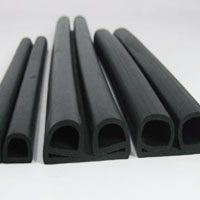


Depending on the size and layout of the coolroom or cold storage freezer, there could be many doors & entries. They could be for personnel access, product transfer systems and forklift and mobile access equipment. In most cases, rubber seals are used to create an airtight seal around the openings to prevent warm air from entering; as preventing the warmer air entering helps reduce the amount of condensation in the air. More extensive facilities tend to have a positive pressure atmosphere stopping the warm air from entering and provide the ability to have small openings for conveyor belts etc.
Regular inspection and replacement of seals is critical and should be performed quarterly.
Filters & Refrigerated Condenser Cooling Unit & Coils (including FDC units)



Many systems work by drawing in the air from the same room as it cools, recycling the air each time. If the filters & coils become clogged, it can lead to reduced airflow and create a temperature indifference within the room. The organic material that is clogging the system is likely to become wet & moist, promoting mould & pathogen growth & contamination.
Inspection & Cleaning frequencies depend on the production processes, refrigeration unit placement and quantities, as well as layouts & locations. We recommend monthly checks to start with, and then we can gauge the best inspection and cleaning frequencies moving forward.
Standing & Pooling Water



Standing water is a breeding ground for pathogens, mould and fungi. If any pooling water is located, swift action to determine the source & fix the leak is required. The repairs may take some time; so interim cleaning & water removal techniques should be performed.
Limiting Access
As mentioned above; if you limit the warm air from entering you can prevent a lot of the condensation in the air.
Where possible, limit the access to the cold room and encourage only necessary entries to be permitted. This is best controlled by the design of the Cold Room and Facility, and the companies policies and procedures to manage personnel.
Limit the use of Paper & Cardboard in Cold Rooms
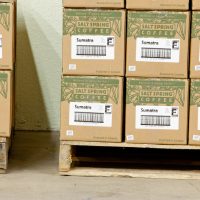


Cardboard & paper can absorb moisture & attract mould, for the reasons we strongly suggest you limit the use of these materials. Plastic boxes & storage containers/crates are better & will keep food fresher longer.
No Wooden Items
Just like paper & cardboard, wood absorbs moisture & should not be used for any purpose within a cold room or refrigerated environment.
- Refrigeration Rubber Door Seals
-
Refrigeration Rubber Door Seals



Depending on the size and layout of the coolroom or cold storage freezer, there could be many doors & entries. They could be for personnel access, product transfer systems and forklift and mobile access equipment. In most cases, rubber seals are used to create an airtight seal around the openings to prevent warm air from entering; as preventing the warmer air entering helps reduce the amount of condensation in the air. More extensive facilities tend to have a positive pressure atmosphere stopping the warm air from entering and provide the ability to have small openings for conveyor belts etc.
Regular inspection and replacement of seals is critical and should be performed quarterly.
- Filters & Coils
-
Filters & Refrigerated Condenser Cooling Unit & Coils (including FDC units)



Many systems work by drawing in the air from the same room as it cools, recycling the air each time. If the filters & coils become clogged, it can lead to reduced airflow and create a temperature indifference within the room. The organic material that is clogging the system is likely to become wet & moist, promoting mould & pathogen growth & contamination.
Inspection & Cleaning frequencies depend on the production processes, refrigeration unit placement and quantities, as well as layouts & locations. We recommend monthly checks to start with, and then we can gauge the best inspection and cleaning frequencies moving forward.
- Standing & Pooling Water
-
Standing & Pooling Water



Standing water is a breeding ground for pathogens, mould and fungi. If any pooling water is located, swift action to determine the source & fix the leak is required. The repairs may take some time; so interim cleaning & water removal techniques should be performed.
- Limiting Access
-
Limiting Access
As mentioned above; if you limit the warm air from entering you can prevent a lot of the condensation in the air.
Where possible, limit the access to the cold room and encourage only necessary entries to be permitted. This is best controlled by the design of the Cold Room and Facility, and the companies policies and procedures to manage personnel.
- Paper & Cardboard
-
Limit the use of Paper & Cardboard in Cold Rooms



Cardboard & paper can absorb moisture & attract mould, for the reasons we strongly suggest you limit the use of these materials. Plastic boxes & storage containers/crates are better & will keep food fresher longer.
- No Wooden Items
-
No Wooden Items
Just like paper & cardboard, wood absorbs moisture & should not be used for any purpose within a cold room or refrigerated environment.
Ensure To Keep It Clean
Daily Tasks should include:
- Disinfect door handles & prone areas being touched by staff
- Depending on foot traffic and vehicle traffic, regular floor cleaning might be required.
- Rotation of stock
- Follow and provide training on GMP techniques & HACCP
- Regular temperature checks, taken from multiple locations
Professional Cleaning
Once again frequency & cold room cleaning instructions will depend on your particular environment, products & processes; however, it’s recommended that you contact a professional cold room cleaning company at a minimum of six months to clean and sanitise:
Cleaning Checklist
- Refrigerator Coils & Cold Room Cooling Unit
- Racking Systems
- Mould remediation & Prevention Sprays/ Sanitisers
- Drainage Blockage Removal And Cleaning (most water issues raise from blocked drip pan tray hoses and lines)
- Filter cleaning & Replacement
- Coldrooms walls, Ceilings & Panels
- High to Reach/ Specialised Access Requirements
- Develop Cold Room Cleaning Instructions (including remediation process)


Recent Articles
Get In Touch!
Contact us today and speak to a qualified and trained professional regarding your HVAC & Cleaning requirements.











